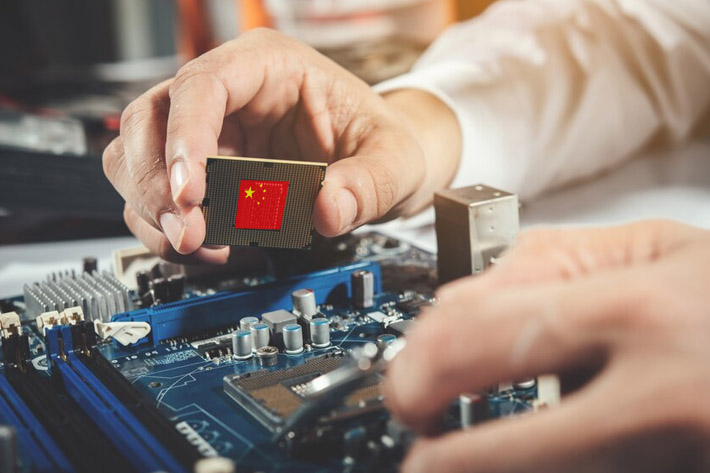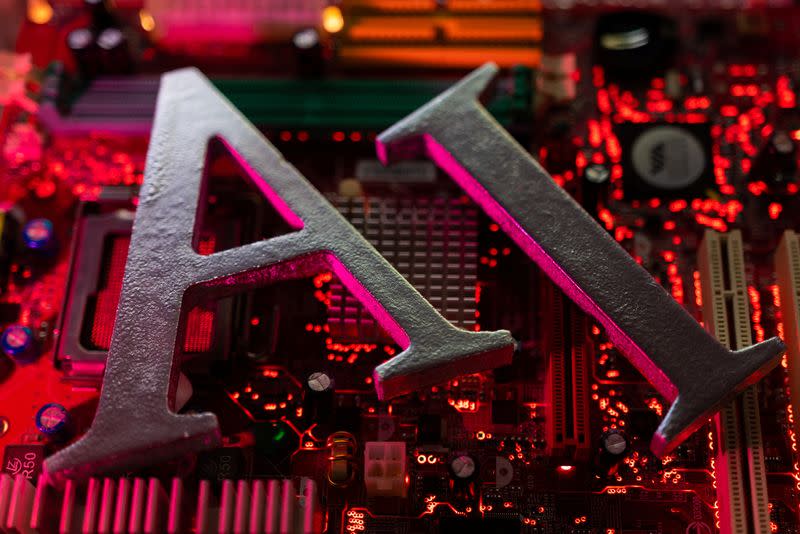US officials are putting together a list of advanced Chinese chip factories that are prohibited from receiving American technology, in an effort to make it easier for companies to adhere to sanctions.
The list could be released in the next couple of months, sources familiar with the matter told Reuters.
Washington, in 2022, restricted US chip equipment makers from shipping key tools to Chinese factories that produce advanced chips. But companies say they are struggling to identify which fabs those are.
Also on AF: Chinese Biotech Giant WuXi ‘Sent US Client’s Data to Beijing’
“People are like: ‘Please, just tell us which are these advanced [fabs] that you really care about,'” said one official, who spoke at an annual export controls conference in Washington this week.
The effort to draw up the list shows the Joe Biden Administration is taking pains to strengthen its existing chips restrictions on China by making it easier for US firms to comply with restrictions.
“It’s probably not going to be an exhaustive listing, if we can do that. But the more that we can help identify what are these facilities that we have a concern with, hopefully that’s going to help,” the official added.
Last month, the US commerce department suspended licenses for dozens of US suppliers to sell millions of dollars worth of chipmaking materials and parts to the most advanced plant of China’s largest chipmaker Semiconductor Manufacturing International Corp (SMIC).
The move came after SMIC produced new generation 7 nanometre (7nm) chips for US-sanctioned Huawei Technologies.
Those chips powered Huawei’s surprise new Mate 60 Pro series, which sparked a turnaround in China’s slumping smartphone market and gave iPhone-maker Apple a run for its money.
SMIC is now reportedly building two new advanced fabs in Shanghai to mass produce 5nm chips for Huawei’s smartphones and artificial intelligence (AI) semiconductors.
US asking allies to stop servicing China chip tools
Washington is also asking allied countries to stop their companies from servicing certain chipmaking tools for Chinese customers.
“We are working with our allies to determine what is important to service and what is not important to service,” said export controls chief Alan Estevez, speaking to reporters at an annual conference.
“We’re pushing for not servicing of those key components and these are discussions we are having with our allies.”
Recently expanded export control have made it difficult for US companies to continue servicing tools that Chinese firms bought prior to the sanctions.
But those rules don’t extend to companies in the Netherlands and Japan — US allies that also implemented some export control targeting China, last year.
Washington has since been pushing both countries to tighten those curbs, but Japan has said it has no plans to expand its restrictions for now.
Meanwhile, Dutch Prime Minister Mark Rutte met with his Chinese counterpart Xi Jinping in Beijing earlier this week to discuss chip restrictions.
Xi told him cutting supply chains ‘will lead to division and confrontation’.
- Reuters, with additional inputs from Vishakha Saxena
Also read:
China Bans Government Computers From Using Intel, AMD Chips: FT
China’s Retaliatory Bans Could Cost US Tech Giants Billions
China’s SMIC May Have Breached US Curbs With Huawei Chip
Beijing’s Push to Dump Foreign Tech on Display at China Chip Fair
Global Chip Sector ‘Can Never Return to its Pre-Covid Set-up’
US Curbs Set Off Sales, Tech Boom for China Chip Equipment Firms
Huawei, SMIC Set to Defy US Sanctions With 5nm Chips: FT
Slower Nvidia Chip Out in Q2 But China Firms ‘Don’t Want It’
Threat of More Chip Curbs Spurs Warnings on China Innovation
























